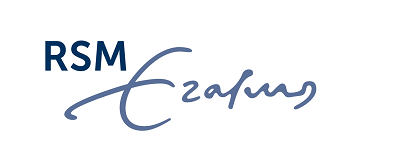- Managing people
How Team Member Selection Goes Wrong
New study reveals how perceptions of competence versus interpersonal skills can be inaccurately judged when choosing team members
In moving to more democratic forms of management since the demise of top-down command and control, organizations are increasingly relying on teams to get things done. At the same time, in fast-moving business environments, beset in many sectors by skills shortages, recruiting new staff and choosing new team members can be a regular and often rushed occurrence.
New research from Sofya Isaakyan, Associate Professor of Organizational Behaviour at Rotterdam School of Management, Erasmus University, and colleagues from the University of Maryland, R.H.Smith School of Business, looks at the influence of human perception when teams choose a new member. It specifically highlights how team members’ swift judgments about a prospective new colleague shape their selection decisions and how inaccurate those judgments can be in predicting the prospective member’s performance.
In any selection process recruiters will consider two prime aspects: i) the perceived level of competence or skillset of the candidate, and ii) how well the individual’s personality will fit in the working environment. In the case of teams this applies even more so. On the one hand the team’s strength or weakness in certain task-orientated skills can affect the selection decision, on the other hand so too can how well the person might rub along with the existing team. Making a correct assessment of a candidate both in terms of competence and interpersonal skills is key to ensuring team success.
Getting assessments wrong will often be due to swift judgments being made. This is particularly likely with external candidates when perceptions are based on brief acquaintance, rather than on reports of past performance and developed relationships as would be the case with internal candidates. The use of AI tools and virtual interviews, where swift judgments are almost inevitable, only exacerbate the problem. The new research examines how swift judgments impact team members’ selection decisions and how accurate these judgments are in predicting prospective members’ performance in the team—and how getting it wrong damages team effectiveness.
The study’s key finding is that there is a marked difference in the accuracy of team members’ perceptions of a candidate’s competence and their perception of that person’s interpersonal skills. The competence aspect relates to task-related performance and providing task-related ideas and suggestions. The interpersonal performance in the team relates to behaviors aimed at supporting the team’s social and collaborative dynamics. Both matter and should be balanced when decisions are taken.
It appears from the research that predicted task-related competence receives more weight from team members in the selection process than predicted interpersonal related performance. Even more concerning, the study found that the predictions about task-related performance show good accuracy, whereas the predictions about interpersonal related performance do not. This shows, not only that judgements about how well a candidate will jell with the team are not prioritized, but that their accuracy cannot be relied on in the first place.
Competence (comprising such traits as skillfulness, task-related efficiency, and intelligence) is important and should be weighed in relation to the team’s existing competences. However, team dynamics and ultimately team success is in the end dependent on its members’ effective collaboration and interdependence. These qualities are shaped by the impact of each member’s interpersonal skills (comprising such traits as warmth, good-naturedness, good communication, and empathy). When teams are under pressure—a common occurrence in today’s fast-paced uncertain economy—the importance of interdependence is elevated.
We hear a lot about the potential for discrimination in recruitment processes including recently how AI powered tools can exacerbate this. Teams and recruiters generally should also be aware of how flawed judgements as described in this research can lead to the recruitment of unsatisfactory team members.
…………………………………………………………………………………………………………………
‘Swiftly judging whom to bring on board: How person perception (accurate or not) influences selection of prospective team members,’ 2023, Group and Organization Management. Rellie Derfler-Rozina, Sofya Isaakyan, Hyunsun Park. https://doi.org/10.1016/j.obhdp.2022.104206
One of Europe’s leading business schools, and ranked among the top three for research, RSM provides ground-breaking research and education furthering excellence in all aspects of management.
ARTICLES YOU MIGHT LIKE
RESEARCH
Harvard and BC University study values conversational receptiveness in our polarized times
DEVELOPING LEADERS QUARTERLY MAGAZINE AND WEEKLY BRIEFING EMAILS

































